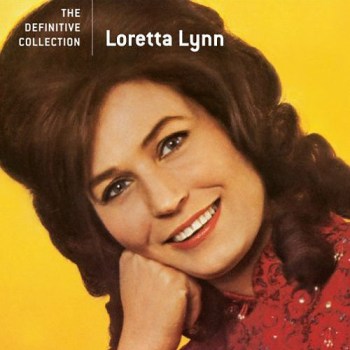
Not all the protest music of the Vietnam era came from folk singers in Manhattan coffee houses. In Nashville, Loretta Lynn led a down-home feminist crusade against philandering husbands (“Don’t Come Home Cheatin’ With Lovin’ On Your Mind”), conniving mistresses (“You Ain’t Woman Enough”) and a government that turned wives into widows (“Dear Uncle Sam”). Some of these songs, like the birth-control-advocatin’ “The Pill,” got Lynn banned from country radio stations. But who could stay steamed at a pretty, borderline-brilliant singer-songwriter from the Kentucky hamlet of Butcher’s Holler?
Few of Lynn’s songs carried as much drama, deprivation and heartache as her own rags-to-riches saga: born the second of eight children in a poor rural family; married by 13 to 21-year-old Oliver “Doolittle” Lynn; enduring his infidelity for a decade before he gave her a guitar; blossoming into a singer-songwriter who used Doo’s misdeeds as her material. Chapter One of the saga is in her signature hit, which makes vivid musical pictures of Daddy’s job at the Van Lear Cal Mines, Mommy’s bleeding fingers at the washboard, the kids barefoot in summer and shod from a mail-order catalog in winter. So purely Appalachian that it rhymes “hard” and “tired,” “Coal Miner’s Daughter” spawned Lynn’s autobiography and the 1980 bio-pic, which earned Sissy Spacek an Oscar for Best Actress. At the end of the song, Lynn revisits the shack to find “Not much left but the floor, nothin’ Lives here anymore / ’Cept the memories of a coal miner’s daughter.”
(Browse the All-TIME 100 Songs and more than 100 other pop culture lists on TIME’s Populist iPad app)
[youtube=http://www.youtube.com/watch?v=f9eHp7JJgq8]

